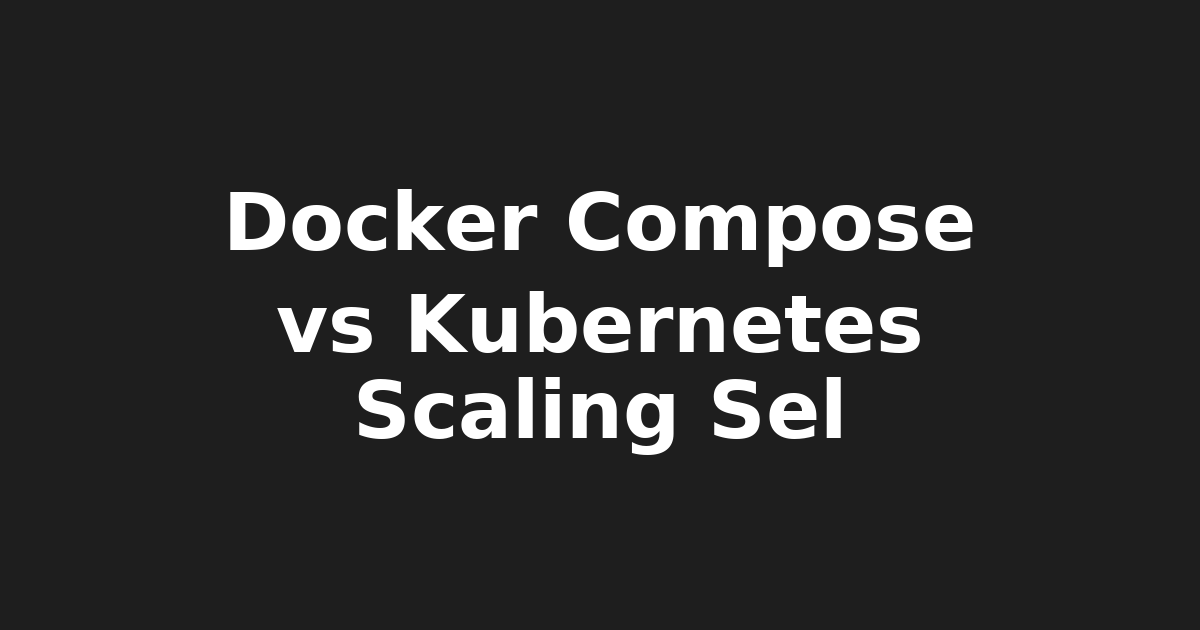Docker Compose vs Kubernetes: Choosing the Right Container Orchestrator for…

Docker Compose vs Kubernetes: The Showdown for Self-Hosted Applications (2023 Edition) 💻🚀
Hey there, Techies! 👋 Josh here, your friendly neighborhood Linux guru from KeepItTechie. Today, we're diving into the epic battle between Docker Compose and Kubernetes, two powerful titans of containerized application management. Whether you're a developer, system admin, or just a tech enthusiast, understanding these tools is crucial for self-hosting applications like a boss!
What's Docker Compose? 🐳
Docker Compose is the simplest way to spin up multi-container applications on Docker. It allows us to define services and their dependencies in one sleek YAML file, making it perfect for small-to-medium projects with simple orchestration requirements. Think of it as your friendly neighborhood tool for managing a few containers without breaking a sweat.
What's Kubernetes (k8s)? 🦸♂️
On the other hand, we have Kubernetes - an open-source platform that automates deployment, scaling, and management of containerized applications. It's the muscle-bound heavyweight for large-scale distributed systems requiring high availability, load balancing, auto-scaling, and rolling updates. If Docker Compose is your friendly neighborhood tool, then Kubernetes is... well, The Avengers of containerization!
The Great Debate: Scalability, Usability, Cost, and Learning Curve 📊
When deciding between Docker Compose and Kubernetes for your self-hosted applications, consider these factors:
Scalability 🏢
If you're working on a small project or have limited resources, Docker Compose is the way to go. But as your application grows, so does the need for more advanced features like auto-scaling and load balancing - this is where Kubernetes shines! With Kubernetes, you can easily scale your applications up and down based on demand, ensuring smooth performance even in high-traffic situations.
Ease of Use 👩💻
Docker Compose is relatively easy to learn and use for beginners. In contrast, Kubernetes has a steeper learning curve due to its extensive features and complexity. But don't worry! With the right resources (shameless plug: KeepItTechie), you can master Kubernetes in no time.
Cost 💸
Both tools are open-source, but when it comes to cloud deployments, costs can vary. If you're planning to host your application on a managed service like Google Kubernetes Engine (GKE) or Amazon Elastic Container Service for Kubernetes (EKS), costs will be higher than with Docker Compose on AWS Fargate or Azure Container Instances.
Learning Curve 🎓
Docker Compose has a gentler learning curve, but Kubernetes offers more advanced features that can help you build robust applications at scale. So, if you're just starting out, start with Docker Compose, and when your application grows, level up to Kubernetes.
Who Wins? You Do! 🏆
Ultimately, the choice between Docker Compose and Kubernetes comes down to your needs and resources. Both tools offer unique advantages that can help you optimize your self-hosted application deployment and ensure high availability. So embrace the journey of learning and mastering these powerful technologies, Techies!
Bonus Tip 💡
Don't forget to optimize your infrastructure costs by choosing the right cloud provider for your needs. And remember, with great power comes great responsibility - always prioritize security and reliability when self-hosting applications. Keep it techie, friends! 🕺🏻🌟
🙋♂️ This post was brought to you by Josh from KeepItTechie — helping you break into tech, one command at a time.
